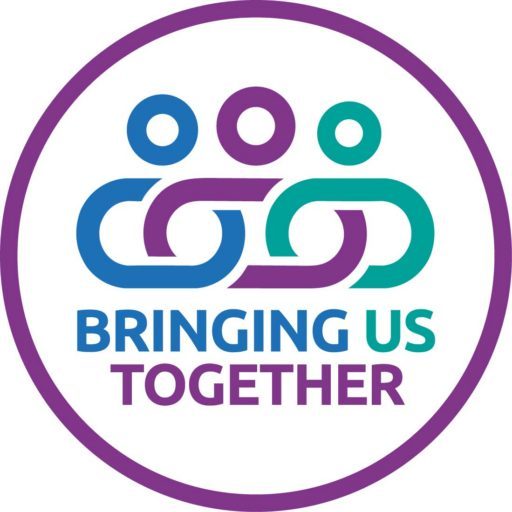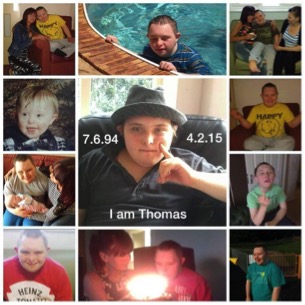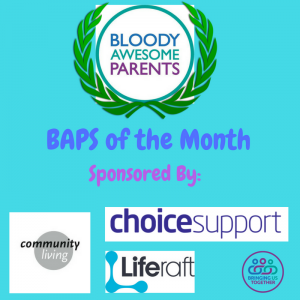E: A to Z of Family Rights and Lives
Our A to Z of Family Rights continues with the letter E. E is for Early Intervention, Employment, Education, Equality and Elephant in the room, to name a few.
E is for
 Early Intervention: Jargon for something very obvious and simple which unfortunately does not always happen. It is about acting now before problems get worse or even better – or before problems even begin. It helps build emotional resilience and confidence, and can mean a better future for all children and their families. Emotional well-being provides the foundations for how children feel about themselves. Early Intervention at its best can be a parenting programme at a Children’s Centre, empathic anti natal care for a young mum; or for disabled children and families it can be supporting and being there for the family through diagnosis.
Early Intervention: Jargon for something very obvious and simple which unfortunately does not always happen. It is about acting now before problems get worse or even better – or before problems even begin. It helps build emotional resilience and confidence, and can mean a better future for all children and their families. Emotional well-being provides the foundations for how children feel about themselves. Early Intervention at its best can be a parenting programme at a Children’s Centre, empathic anti natal care for a young mum; or for disabled children and families it can be supporting and being there for the family through diagnosis.
What is your experience of Early Intervention?
Education: Everyone has the right to an education. This is a basic human right under the United Nations Declaration of Human Rights.
If you live in England and Wales, your local authority education department is required by law to ensure that free education is available for all children of compulsory school age (five to 16 year-olds) living in your area.
If you live in Scotland, your education authority is required to do the same.
The education provided should be appropriate to pupils’ age, abilities, aptitudes and any special educational needs that they might have.
Local authorities or education authorities must also ensure that school places are available for all young people aged 16-18 who want one (or sixth form college places in England and Wales for all young people aged 16-19).
So, how appropriate to your child’s age, ability, aptitude and SEN is their educational provision?
Efficiency. The definition of efficient – performing or functioning in the best possible manner with the least waste of time and effort; having and using requisite knowledge, skill, and industry. The definition of efficiency – the state or quality of being efficient.
How efficient is your Local Authority and CCG?
Elephant in the room: In several meetings, there is an Elephant in the Room. This may be the budget (or lack thereof), the service wait list or non-existence of required service, the practitioner may be questioning the parental capacity or the parent may be questioning the competency of the practitioner. There is often an awareness by all that a decision has already been made outside of the meeting or that local policy does not fully comply with legislation or sometimes we all sit there knowing that the “best use of resources” is being used as a get out of jail free card.
Have you sat in a meeting when there was an elephant in the room?
Employment: Our children have a right to excellent support as they go through their secondary school years with aspirational advice around careers that builds on their skills, likes and interests. As parents we know that opening doors and providing purposeful opportunities for our kids gives confidence and different experiences to find job prospects for the future. Having a job gives a meaning and pride; people to meet and being part of a working community. We know it is hard to achieve but good person centred support early on goes a long way.
For more information on Employment and Support Allowance, click on the link
How prepared for employment is your child?
Empowered: Definition – made (someone) stronger and more confident, especially in controlling their life and claiming their rights.
How often have we heard those words – empowering parents especially around parent participation? It comes with belief in yourself, having confidence to be assertive, understanding your rights, to channel in the right places any anger, having the right information and a strong voice. It also then involves others actually being prepared to listen and understand what we are saying.
We need to do all we can to ensure that these skills are passed on to our children. They need to be empowered to speak up to say what they want and need.
Do you feel empowered when dealing with those involved in your child’s life? How empowered is your child, are their views listened to or even obtained?
Equality: “The state of being equal, especially in status, rights, or opportunities”:
This means everyone having the same chances to do what they can. For many of our own young people they may well need extra help to get the same chances. Disabled children and young people face many barriers to have the same opportunities. However, we know that it is imperative for our children and young people to be given equal rights and opportunities for many reasons –
- People enjoy life more if they are treated fairly.
- People respect one another because each and every person can do what they are best at.
- It is easier and safer for people to live side by side and get on with each other if everyone is treated fairly.
- The Equality Act 2010 and the United Nations (UN) Convention on disability rights help to enforce, protect and promote disabled people’s rights. Our disabled young people have rights to protect them from discrimination. These legal rights cover most areas including:
- employment
- education
- access to goods, services and facilities
- buying and renting land or property
The Equality Act 2010 also protects your rights if you have an association with a disabled person, eg a carer or parent.
Get more information about the Equality Act 2010 from The Government Equalities Office.
Get more information about the UN Convention on disability rights from the Office for Disability Issues.
How “equal” do you feel life is for your child, young person or yourself?
Expert: “A person with a high degree of skill in or knowledge of a certain subject”. There is certainly a place for Experts in our world but there is no place for Experts practicing the Expert Model. We often feel as parents that the professional is the expert and their language gives them power so we find it hard to challenge. However, as parents we know our children better than anyone else does. We are the experts who can read them like a book, who can diagnosis them when they are ill, who understands their smallest ways of communicating better than anyone else.
Are you treated as an expert? What is your experience of “experts”?
Expert Model: The Expert Model provides a response to disability based on the Medical Model. Within the framework of the Expert Model, professionals follow a process of identifying the impairment and its limitations (using the Medical Model), and taking the necessary action to improve the position of the disabled person. The Expert Model doesn’t allow families to exercise the basic human right of freedom over his or her own actions. It also does not allow for individuality.
Do you see practitioners who still use the Expert Model?
We will be looking at the letter F later this week – F is for Family.
♥♥♥♥♥♥♥♥♥♥♥♥♥♥♥
If you are interested in Family Rights, Mental Capacity, Person Centred practices and Citizenship, then subscribe to our blog posts so you don’t miss out.
Debs is one of the co-founders and Directors of Bringing Us Together. She is mum to three child with a variety of SEND and has a great husband.







